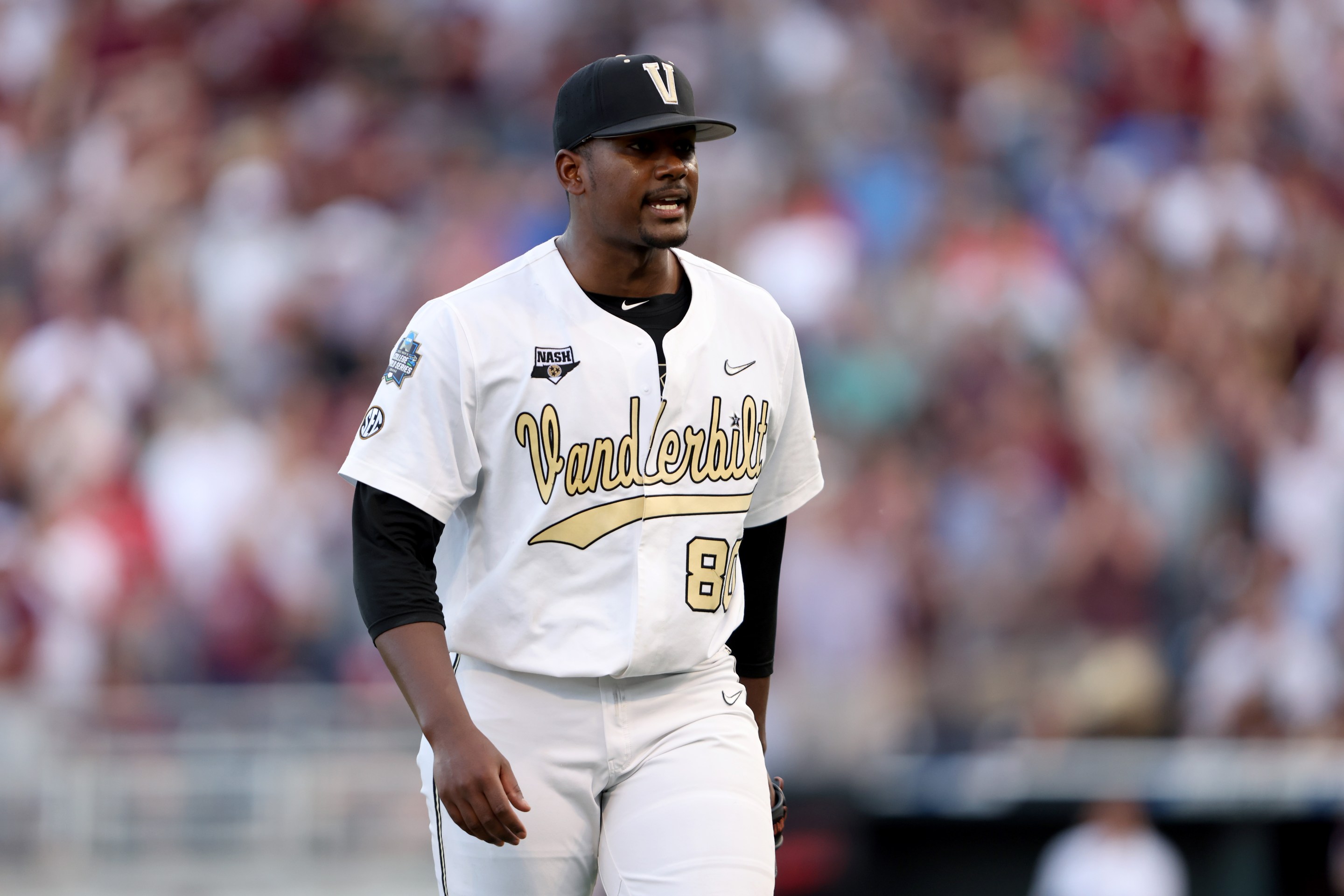Kumar Rocker, one of the few college baseball players to have ever become something of a household name, will not be pitching for a major-league organization next season despite being selected with the 10th overall pick of last month's amateur draft. On the one hand, we have the bum-ass Mets to thank for this, and on the other we have the absurdity of MLB's anti-labor structure.
Once the Mets drafted Rocker in the first round, they had until 5:00 p.m. EDT yesterday to sign him to a contract. This year's 10th overall pick came with a slot value (the signing bonus that any player picked in that position should expect to receive) of $4.74 million, but early reports suggested that the Mets were willing to exceed slot value in order to sign Rocker, and that the two sides had an understanding that the Mets would offer him a $6 million signing bonus. And then the Mets just ... never made Rocker an official offer at all.
The Mets never made an offer for two reasons. The first being that failing to sign Rocker would, thanks to MLB's ridiculous rules, award them with an extra first-round pick (11th overall) in next year's draft. The second being that they didn't even have to offer Rocker any kind of deal, despite drafting him, because Rocker didn't submit to MLB's pre-draft MRI program. Usually, a team has to offer a draft pick at least 40 percent of their slot value in order to receive a compensatory pick in the following year's draft, but there's a loophole to that rule that allows teams to get away with not offering anything and still getting the pick if a player doesn't go through MLB's MRI program. There were plenty of pre-draft concerns about Rocker's health, but his agent released a statement yesterday claiming that Rocker has received an independent medical review and been given a clean bill of health. The Mets may not even disagree with that assessment. Mets beat writer Justin Toscano cited a source who told him that the Mets think Rocker could pitch tomorrow, but that the team doesn't feel confident about his long-term health prospects. (If that's the case, I would like the Mets to point out one elite high school or college pitcher whose long-term health isn't a concern.) Ultimately, the Mets decided that the value of an extra first-round pick in next year's draft outweighed the value of having Rocker on the team, and they made their decision on that basis. We know this because Mets owner Steve Cohen just came out and said so:
Education time - Baseball draft picks are worth up to 5x their slot value to clubs .I never shy away from investments that can make me that type of return.
— Steven Cohen (@StevenACohen2) August 1, 2021
It's easy enough to see all of this as wise deal-making from the perspective of the Mets, who have, in cold business terms, simply traded one possibly distressed asset for a speculative asset. But that would require one to forget about Rocker's place in all of this. One might assume that after being denied an opportunity to even consider a major-league deal from the Mets, Rocker would be free to sign with any team he pleases. That is where MLB's rules once again intervene: Rocker cannot sign with another team, and so his only options are to either return to Vanderbilt for another year of college ball or to bide his time in an independent league, and re-enter the draft next year.
Of course this is all stupid and unfair, and the stupidity and unfairness of the situation is only heightened by the inclusion of the Mets—whose owner just came right and said that Rocker is nothing more than a nameless, faceless asset to his franchise—and Rocker, whose pre-MLB fame only adds to the disappointment of his big-league arrival being delayed by a year. Cut away all the talk about slot values and MRIs and compensatory picks, and all you are left with is the knowledge that an extremely cool baseball player who fans have been waiting for years to see in the pros will not be allowed to play pro ball this year, for no good reason. Although I'm sure Mets fans who were eagerly waiting to purchase a Kumar Rocker jersey will be pleased to know that the Mets stand to make a five-times return on their investment with next year's 11th overall pick.
If there's a silver lining to any of this, it's in the extra attention that Cohen and Rocker's notoriety have provided to a pretty standard example of the many ways in which MLB cuts the legs out from under its labor force. Start with the acknowledgement that it is totally absurd for Rocker to be denied a year of his professional career because the Mets are worried something bad might happen to his elbow at some point in the future, and follow the thread through more and compounding absurdities. Why are teams even incentivized by compensatory picks to lowball their draftees in the first place? Why do draft picks have their bonuses confined to the parameters of their slot value? Why does the amateur draft even exist at all?
The answers to these questions are all well-known, but they are never asked with the volume and frequency necessary to elicit any serious considerations about changing the way MLB treats its incoming players. Kumar Rocker isn't the first player to get screwed by this system, and so long as the owners and the players' union are content to deny amateur players the ability to enter the labor market freely, he won't be the last.






